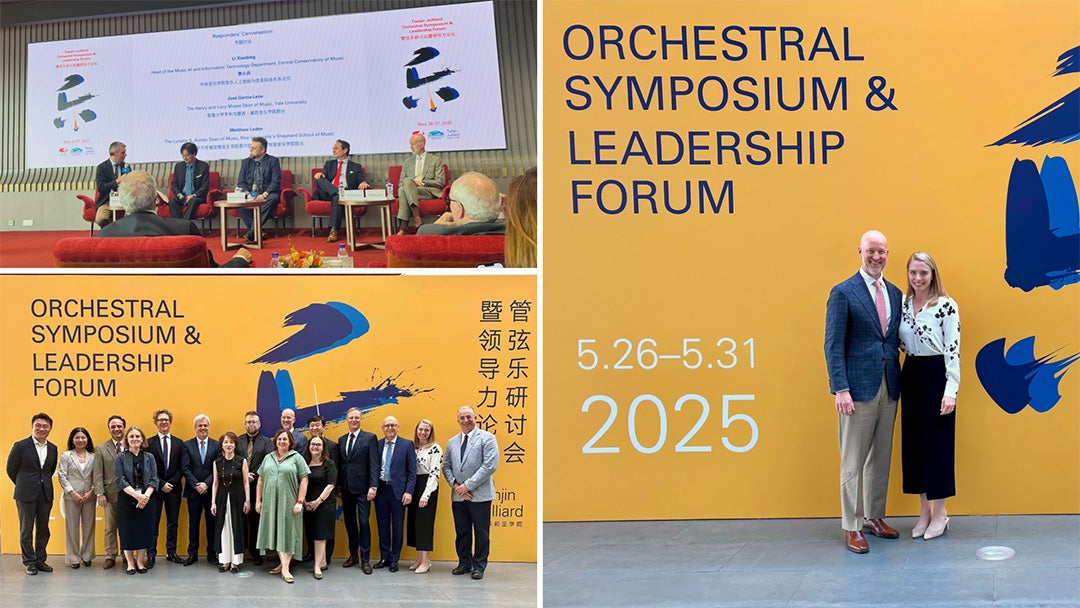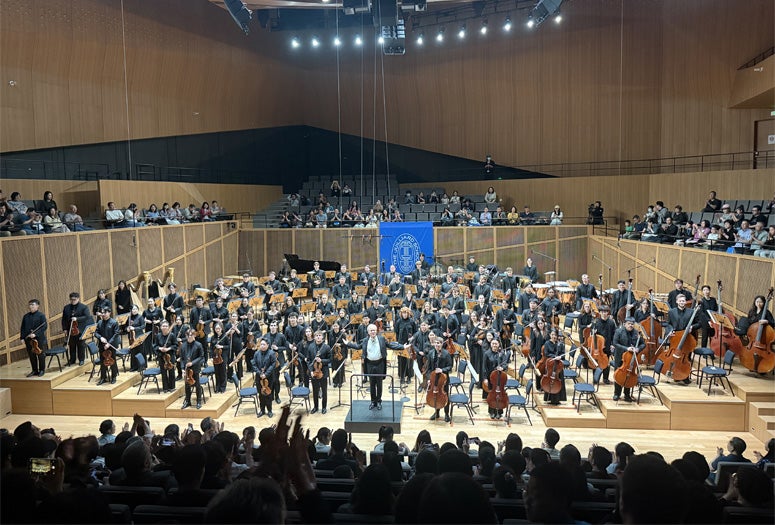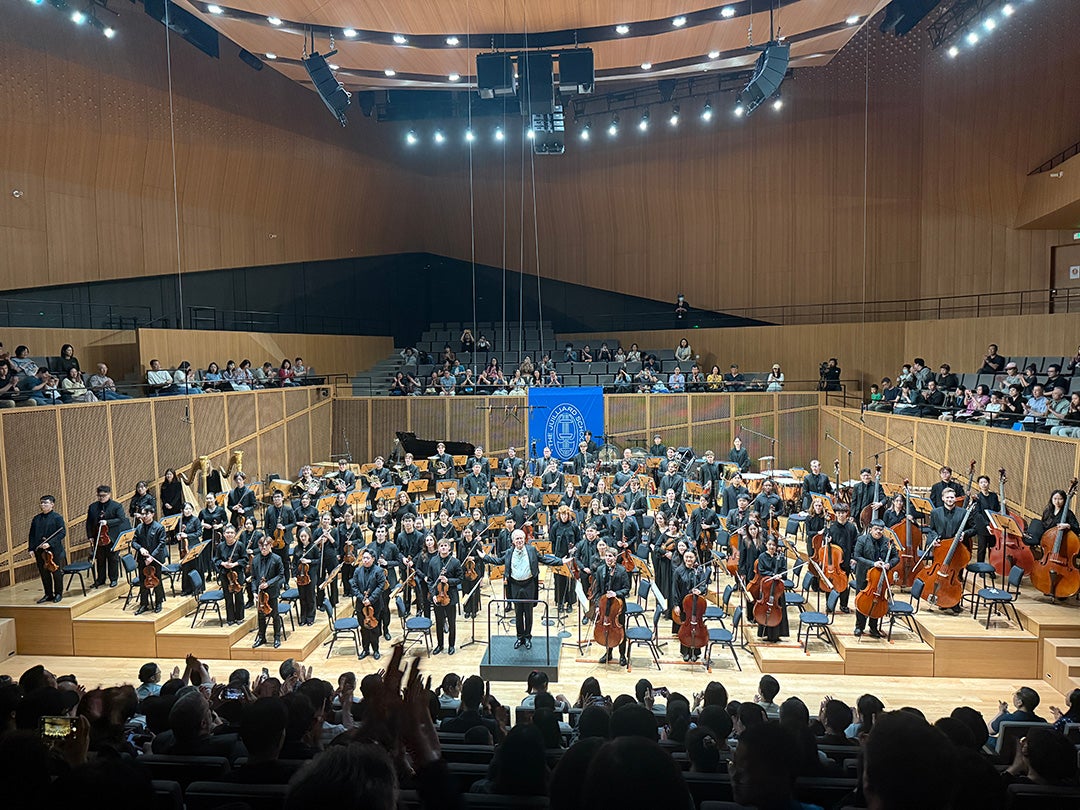
At a time when international dialogue can feel tenuous, students from Rice University’s Shepherd School of Music helped demonstrate a different kind of diplomacy — one led not by policy but by performance.
Five students joined leaders from the Shepherd School to travel to Tianjin, China, to take part in the inaugural Tianjin Juilliard Orchestral Symposium and Leadership Forum, a weeklong event that convened top music conservatories from around the globe. They joined peers from 30 institutions across Asia, Europe and North America to form the NextGen Symphony, a first-of-its-kind international orchestra. Together, they rehearsed and performed works by Zhou Long, Hector Berlioz and Béla Bartók under the baton of conductor David Robertson, culminating in concerts in Tianjin and at Beijing’s National Centre for the Performing Arts.
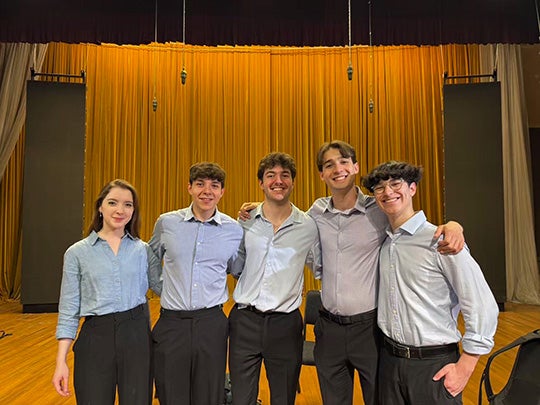
“It was a trip for music students from the most select schools in the world,” said Matthew Loden, the Lynette S. Autrey Dean of Music, who along with senior assistant dean Emily Wells accompanied the group. “To put all of these disparate young musicians together and have them work hard to deliver two incredible concerts, that was very special. And I know their Shepherd School faculty teachers were incredibly proud to watch these students perform on the livestream concerts.”
Instrumentalists Chiara Rackerby, Christian León, Jackson Bernal, Jake Glaser and Ryan Clever served as musical and cultural ambassadors throughout the week, participating not only in rehearsals and concerts but also in outreach concerts and exploratory adventures across Tianjin. In chamber groups, they performed in venues throughout the city, including the historic Tianjin Yao Hua High School Auditorium, where the Shepherd School wind quintet shared Valerie Coleman’s “Afro-Cuban Concerto” with local high school students and the public.
“There are so many things I will remember from this trip to Tianjin,” said Rackerby, an oboist who just completed her Master of Music in May. “I made countless heartfelt connections with peers from all over the world and had the most wonderful opportunity to play music alongside them.”
“What I will remember most was how the Shepherd School and many other ensembles from across the world were able to intermix our many different cultures into a unified form of music,” said Bernal, a bassoonist. “While language barriers initially proved difficult, our shared sense of musical artistry allowed us to communicate from inside the orchestra.”
Glaser, a clarinetist, described the most memorable part of the trip as the contrast between narratives he’d heard about China and the reality he experienced.
“I think that it is easy, especially as things get more polarized politically, to view a nation such as China with fear and blanket expectation,” he said. “But when we arrived in Beijing and experienced incredible food, amazing architecture and an overall willingness from people to help us in a genuinely kind way, it was very powerful. I will remember how easy it was for us to feel safe and at ease while we were on our trip.”
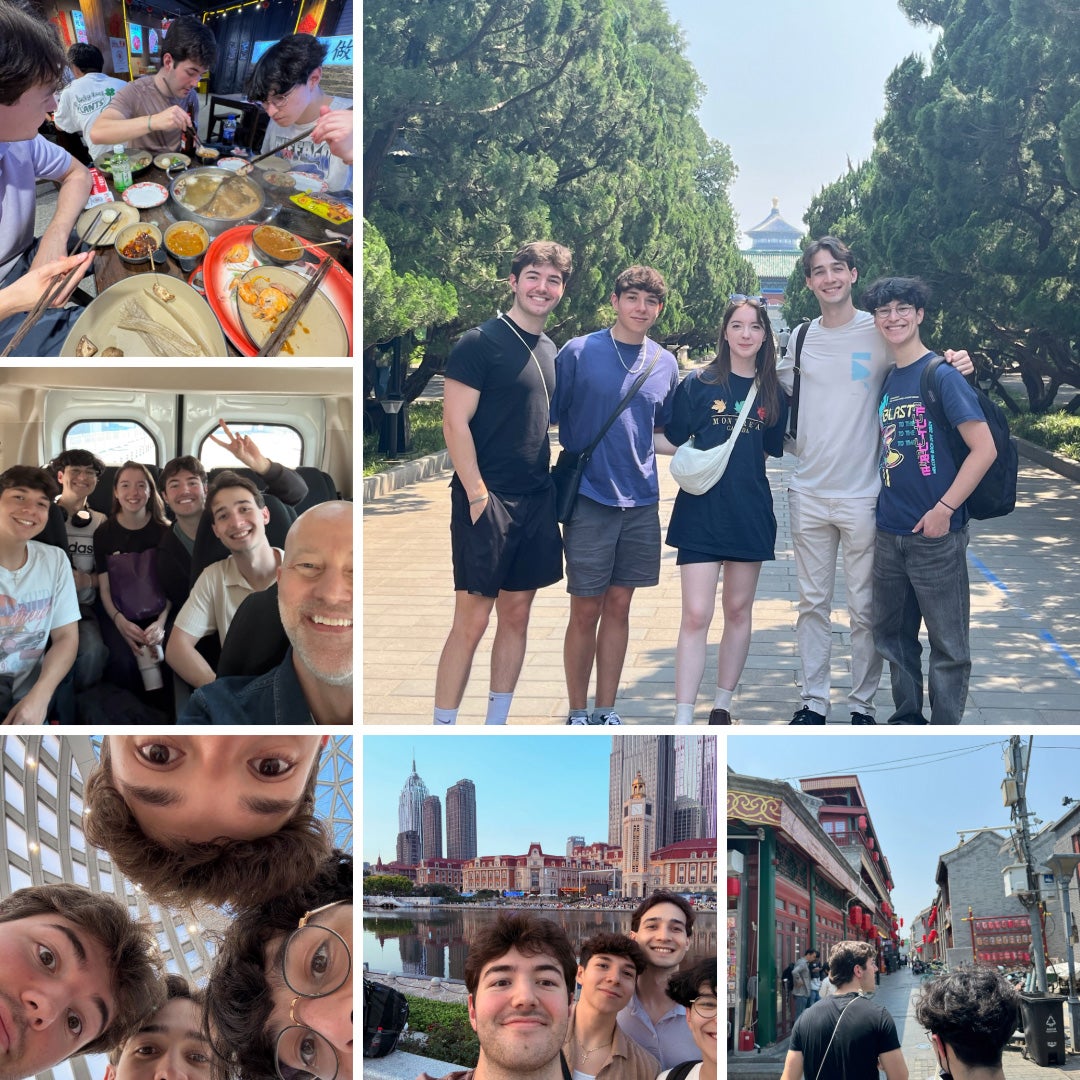
Glaser also noted how quickly the orchestra gelled.
“We sort of had this expectation that since everyone was from different schools and because we all had a general sense of jetlag and summer tiredness, the orchestra would suffer,” Glaser said. “However, as we ran through the Bartók, I realized that the orchestra was at a uniquely high level. ... Performing in front of my peers was just the final showcase of how artistically validated I felt this week.”
León, a horn player, called the program “fulfilling and unforgettable.”
“This was the first time I’d ever left the Americas, and it was so interesting seeing how different their cultures are from my own,” León said. “Playing in such beautiful concert hall venues in Tianjin as well as sharing my music with my peers in the program — who I now consider close friends — made for a very fulfilling and unforgettable experience.”
Wells said the students reflected the core ethos of the Shepherd School throughout the trip.
“They showed up prepared and ready to lead from whatever role they sat in the orchestra,” Wells said. “That’s just normal for them, and it was seen as a step above. They were great representatives, both in a musical and cultural ambassador way.”
“Not only were our students the musical leaders, they were the social leaders as well,” Loden said. “They explored the city, connected with people and truly embodied what it means to be a global musician.”
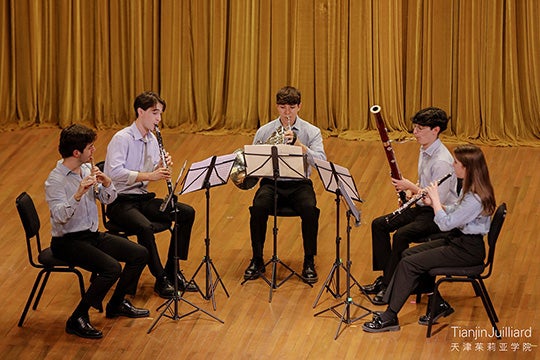
While the concerts served as the event’s centerpiece, the concurrent Leadership Forum created a space for dialogue among global music educators, administrators and artists. Topics ranged from artistic citizenship and curricular evolution to the implications of artificial intelligence on music creation.
“We asked ourselves the tough questions: ‘Are we teaching what we should be teaching? Are our programs preparing students for the world they’re entering?’” Loden said. “The symposium helped us think deeply about how we can lead curriculum design at a global level and how schools like the Shepherd School can serve as conveners for this kind of work.”
Wells noted that the Shepherd School was one of the few institutions with multiple leadership representatives present.
“Matthew and I occupy different but complementary roles, and it was meaningful for both of us to engage in these forward-looking conversations,” Wells said. “I’ve thought a lot about how we bring these ideas back not just to faculty but to our staff and community. What is our responsibility in stewarding the future of this field? These are the conversations that will shape the next 20 or 30 years of music education.”
The trip was made possible with support from Rice’s Office of Research and donor Nancy S. Dunlap.
With plans already underway for future collaborations, the Tianjin symposium proved that in an orchestra — much like in the world — language barriers fall away when the music begins.
